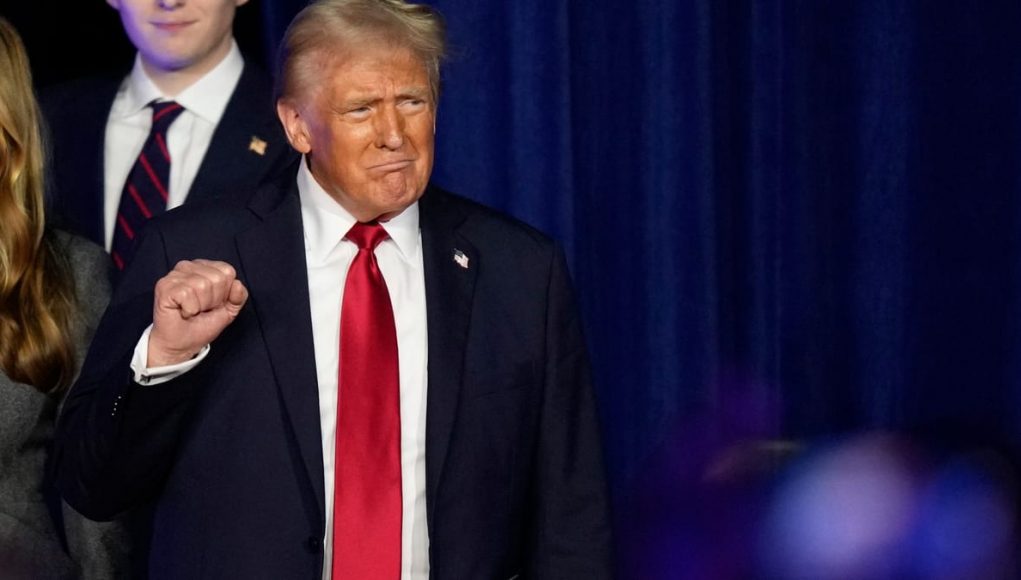The USA has decided: for its old, new President Trump. The German economy is concerned about this development; it fears protectionism and high tariffs.
Former President Donald Trump has made it and will become US President again. He had already declared himself the winner a few hours ago. This is not a good result for the German economy – most US experts and economists agree on that.
- You can find all developments regarding the US election in our live blog
David Sirakov, director of the Atlantic Academy of Rhineland-Palatinate, told t-online on Wednesday morning: “We know that, among other things, trade policy will be difficult. Trump has already announced that he will introduce import tariffs. A trade war between the USA and the EU is possible.” Europe now has to prepare for some changes.
“A Trump victory is exactly what we don’t need for our weakening economy at the moment,” says economist Jürgen Matthes from the employer-oriented Institute of the German Economy (IW) in Cologne.
Trump could become a problem, especially for German industry – after all, the USA and Germany are currently important trading partners. The chemical industry and the German automotive industry in particular rely heavily on the US market.
video | Germans on Trump's election victory: “More crazy people at the red button than normal people”
Reason for this concern: Trump has already announced that he wants to impose new tariffs on imports. A serious blow for Germany as an export nation. IW economist Matthes said in an interview with t-online: “Trump has announced several times that he will increase tariffs, and that hits us in a vulnerable place because the USA is our most important export market.”
The IW has calculated how serious this blow could be. Accordingly, Trump's tariff plans could mean an increase of up to 20 percent on European products. If Brussels responds with countermeasures, Germany's gross domestic product (GDP) could shrink by 180 billion euros by 2028. For comparison: In 2023, German GDP was around 4.5 trillion euros. The danger to the German economy becomes even more tangible with a different number. The IW also expects that a second Trump presidency could cost Germany up to 151,000 jobs.

The already ailing automotive industry is likely to be particularly affected. “In principle, all export sectors are affected, but the auto industry is also vulnerable because Trump could close European electric cars’ access to IRA funding,” said Matthes. He is referring to the so-called Inflation Reduction Act, which was passed under incumbent President Joe Biden and was intended to strengthen the American economy but also environmental protection after the corona pandemic. Accordingly, there were also opportunities for European companies to bring their products to the market.
“If Trump further seals off the USA, this will create incentives for European companies to shift their production. That would be a problem for Germany,” says Matthes. In plain language: Under a protectionist Trump administration, companies could migrate from Europe in order not to lose their market access in the USA.
The President of the Association of the Automotive Industry (VDA), Hildegard Müller, explained in response to a t-online request: “It is now clear at the latest that the tasks that have been known for a long time must be addressed quickly and decisively.” Europe must urgently learn to think geopolitical and economic policy together. “For the suppliers in the VDA, the USA is the second largest export market in the world after China,” said Müller. The USA is therefore very important for the German automotive industry.
The figures from last year show how big this market is: in 2023, German manufacturers produced 900,000 cars in the USA, more than ever before. Half of these cars were exported. The German automotive industry currently employs 138,000 people in the USA, of which 48,000 are attributable to automobile manufacturers and 90,000 to German suppliers. In addition, around 400,000 German-made cars were shipped to the USA in 2023. In the first half of 2024, the USA was the most important buyer of German car exports.































